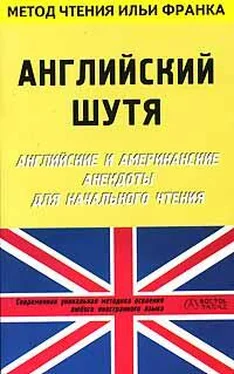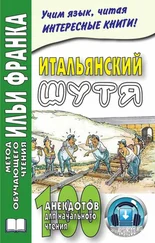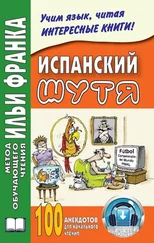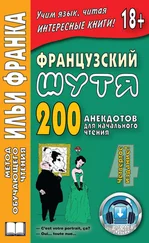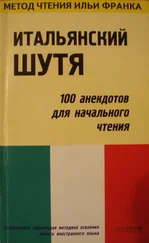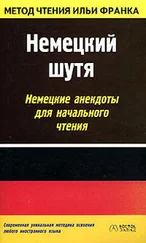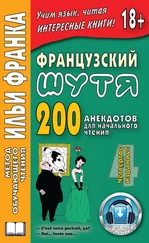"That is very kind of you (это очень мило с вашей стороны) ," said the doctor emotionally (взволнованно, растроганным голосом) , and then added (добавил) , "Can I see that prescription I just gave you? (можно я посмотрю тот рецепт, что я вам дал только что) I'd like to make a little change… (я бы хотел сделать небольшое изменение) "
The patient shook his doctor's hand in gratitude and said, "Since we are the best of friends, I would not insult you by offering payment. But I would like you to know that I have mentioned you in my will."
"That is very kind of you," said the doctor emotionally, and then added, "Can I see that prescription I just gave you? I'd like to make a little change…"
That is very kind of you.
The man told his doctor that he wasn't able to do (человек сказал своему врачу, что он не может делать) all the things around the house that he used to do (все вещи по дому, которые он раньше делал: «имел обыкновение делать») . When the examination was complete (когда осмотр был завершен) , he said, "Now, Doc, I can take it (ну, док, я справлюсь с этим: «я могу взять это») . Tell me in plain English what is wrong with me (скажи мне на ясном английском = открыто, что со мной не так; plain — ясный, понятный; простой; ровный /о местности/; равнина) ."
"Well, in plain English," the doctor replied, "you're just lazy (ты просто ленивый) ."
"Okay," said the man. "Now give me the medical term so I can tell my wife (теперь назови мне медицинский термин, чтобы я мог сказать моей жене) ."
The man told his doctor that he wasn't able to do all the things around the house that he used to do. When the examination was complete, he said, "Now, Doc, I can take it. Tell me in plain English what is wrong with me."
"Well, in plain English," the doctor replied, "you're just lazy."
"Okay," said the man. "Now give me the medical term so I can tell my wife."
Now, Doc, I can take it.
What is wrong with him?
You're just lazy.
As the doctor completed an examination of the patient (когда доктор закончил осмотр пациента; complete [k@m'pli:t]; patient ['peIS(@)nt]) , he said (он сказал) , "I can't find a cause for your complaint (я не могу найти причину вашей жалобы; complaint [k@m'pleInt]) . Frankly (откровенно /говоря/) , I think it's due to drinking (я думаю, это из-за выпивания; due — должный, обязанный, ожидаемый) ."
"In that case (в таком случае) ," said the patient, "I'll come back when you're sober (я вернусь, когда вы будете трезвым, когда протрезвеете) ".
As the doctor completed an examination of the patient, he said, "I can't find a cause for your complaint. Frankly, I think it's due to drinking."
"In that case," said the patient, "I'll come back when you're sober".
Frankly, I think it's due to drinking.
A patient came to his dentist (пациент пришел к своему дантисту) with problems with his teeth (с проблемами с зубами) .
Patient: Doctor, I have yellow teeth (у меня желтые зубы) , what do I do? (что мне делать)
Dentist: Wear a brown tie! (носите коричневый галстук; to wear [wE@(r)])
A patient came to his dentist with problems with his teeth.
Patient: Doctor, I have yellow teeth, what do I do?
Dentist: Wear a brown tie!
What do I do?
Patient: My hair keeps falling out (мои волосы продолжают выпадать) . What can you give me (что вы можете мне дать) to keep it in? (чтобы сохранить их)
Doctor: A shoebox (коробку от ботинок) .
Patient: My hair keeps falling out. What can you give me to keep it in?
Doctor: A shoebox.
My hair keeps falling out.
Doctor: What seems to be the trouble? (что представляется проблемой)
Patient: Doctor, I keep getting the feeling (доктор, у меня постоянно такое чувство: «продолжаю получать чувство») that nobody can hear what I say (что никто не слышит, что я говорю) .
Doctor: What seems to be the trouble?
Doctor: What seems to be the trouble?
Patient: Doctor, I keep getting the feeling that nobody can hear what I say.
Doctor: What seems to be the trouble?
What seems to be the trouble?
Doctor: You're in good health (вы совершенно здоровы: "вы в добром здравии"; health [helT]) . You'll live to be eighty (вы доживете до 80) .
Patient: But, doctor, I am 80 right now (но доктор, мне сейчас 80) .
Doctor: See, what did I tell you (видите, что я вам говорил) .
Doctor: You're in good health. You'll live to be eighty.
Patient: But, doctor, I am 80 right now.
Doctor: See, what did I tell you.
You're in good health.
See, what did I tell you.
Patient: Doctor, I have a serious memory problem (у меня серьезная проблема с памятью; serious ['sIrI@s]; memory ['mem@rI]) . I can't remember anything! (я ничего не могу запомнить, вспомнить)
Doctor: So, since when did you have this problem? (так, с какого времени у вас эта проблема)
Patient: What problem? (какая проблема)
Patient: Doctor, I have a serious memory problem. I can't remember anything!
Doctor: So, since when did you have this problem?
Patient: What problem?
I can't remember anything!
A man, after being hurt (человек, после того, как получил повреждения, травму: to hurt — причинить боль, повредить, ушибить) , calls 911 for help (звонит 911 за помощью) .
Man: Operator, operator, call me an ambulance! (вызовите мне скорую помощь / назовите меня скорой помощью — игра слов: to call — вызывать/называть; ambulance ['&mbjul@ns])
Operator: Okay, sir, you're an ambulance! (вы — скорая помощь)
A man, after being hurt, calls 911 for help.
Man: Operator, operator, call me an ambulance!
Operator: Okay, sir, you're an ambulance!
Call me an ambulance!
A drummer, sick of all the drummer jokes (ударник, уставший от всех шуток про ударников) , decides to change his instrument (решает сменить инструмент) . After some thought (после некоторого раздумья) , he decides on the accordion (он выбирает аккордеон) . So he goes to the music store (и он идет в музыкальный магазин) and says to the owner (и говорит хозяину) , "I'd like to look at the accordions, please (я хочу взглянуть на аккордеоны, пожалуйста) ."
Читать дальше
Конец ознакомительного отрывка
Купить книгу
